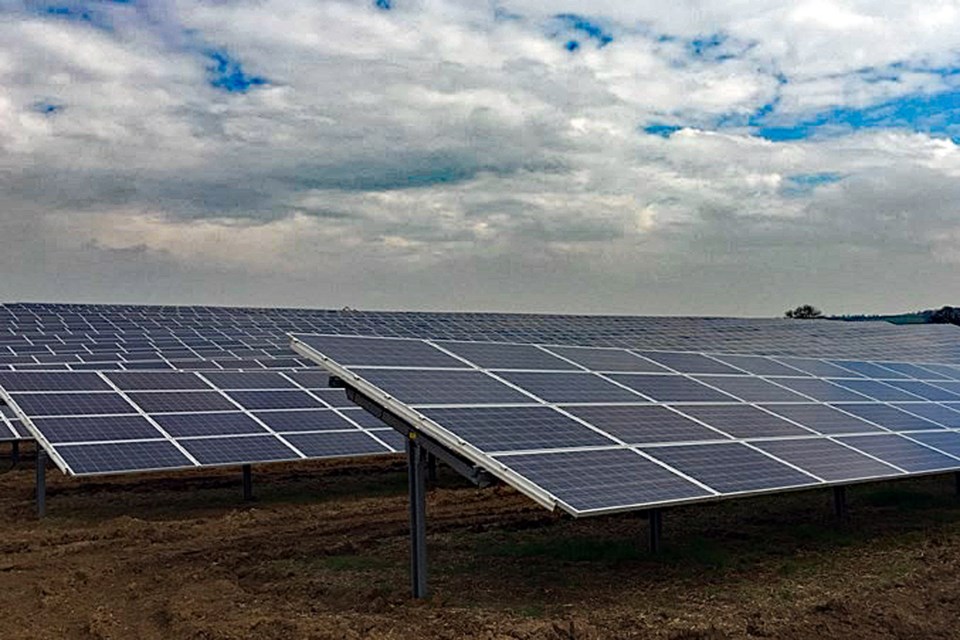As Alberta's seven-month pause on renewable electricity projects expires at the end of this month, new rules setting strict limits on land use and reclamation for developers in the renewable energy sector will come into effect.
The new regulations include a ban on renewable energy developments of Class 1 and Class 2 land in the province, "unless the proponent can demonstrate the ability for both crops and or livestock to coexist with the renewable generation project," Premier Danielle Smith said during a press event on Wednesday.
A "buffer zone" of a minimum of 35 KM will be established around protected areas and other "pristine views" as designated by the province.
"New wind project will no longer be permitted within those buffer zones. And other proposed developments located located within the buffer zones may be subject to a visual impact assessment before approval," Smith said.
Smith said the new rules are part of an "agriculture first" approach which will prioritize agricultural land when making decisions about proposed renewable electricity projects.
Developers will also be responsible for reclamation costs, and will be required to pay a security deposit to the government at the beginning of the project, or negotiate these costs directly with the landowner.
These rules will apply as of March 1, but will not be retroactively applied to already approved or completed projects, Minister of Affordability and Utilities Nathan Neudorf said.
These policies are informed by the first of two reports completed by the Alberta Utilities Commission on its inquiry into renewable energy projects since the moratorium began in August 2023. The second report is currently under review and further policy directives will be issued once that review is complete, Neudorf said.
Critics call changes a second "soft moratorium"
Jorden Dye, director of the Business Renewables Centre-Canada, said the new regulatory frameworks for land use, viewscapes, and reclamation introduce more questions than answers, and fail to give the details needed for those in the industry to make investment decisions.
“Corporations have invested $6.3 billion in power purchase agreements in the past five years in this province, but I expect the government has now essentially introduced a second 'soft moratorium.' By introducing three new regulatory frameworks without details, investors and developers are left wondering what this actually means for their projects. Investors required certainty, and the government offered confusion," Dye said.
Earlier this week, BRC published an analysis showing pending wind and solar projects in Alberta would bring $277 million in municipal tax revenue to 33 municipalities. Dye said with these new restrictions, some of these projects may no longer be possible, and others could be delayed or cancelled.
The land use restrictions and other requirements announced Wednesday only apply to the renewable energy sector, a move Jason Wang, senior analyst at the Pembina Institute, calls "patently unfair."
"No other land use in Alberta is subject to a ban on certain classes of agricultural lands, or not allowed to develop if they are within a 35km radius of a protected area – a zone that could cover up to 76% of southern Alberta. Alberta’s conventional oil and gas industry has no requirement for mandatory reclamation security and the government has yet to commit to addressing the liabilities in that sector, which are 115 times greater than the renewables sector," Wang said.
Wang said Alberta has so far been a success story for the renewables sector, but these bans will create unneccessary hurdles that will drive industry investments and jobs to other provinces or the U.S.
"Alberta has led the country in renewable energy investment, and we will continue to lead the country. At the same time, we must grow our renewable energy industry in well-defined and responsible ways," Smith said.



